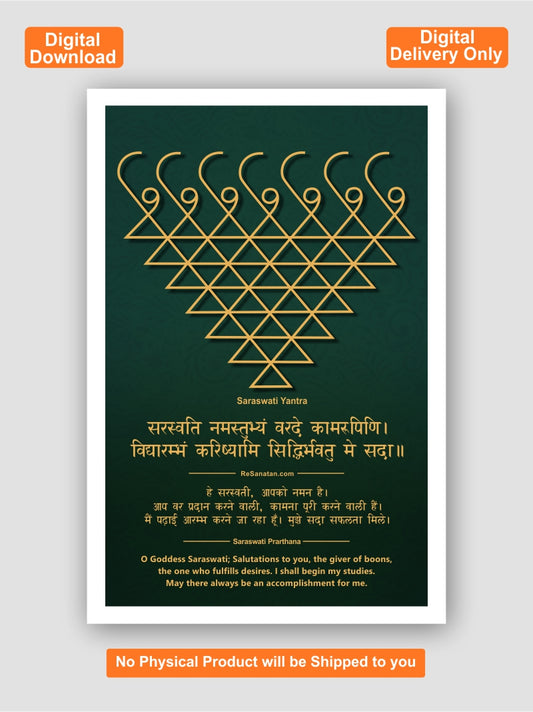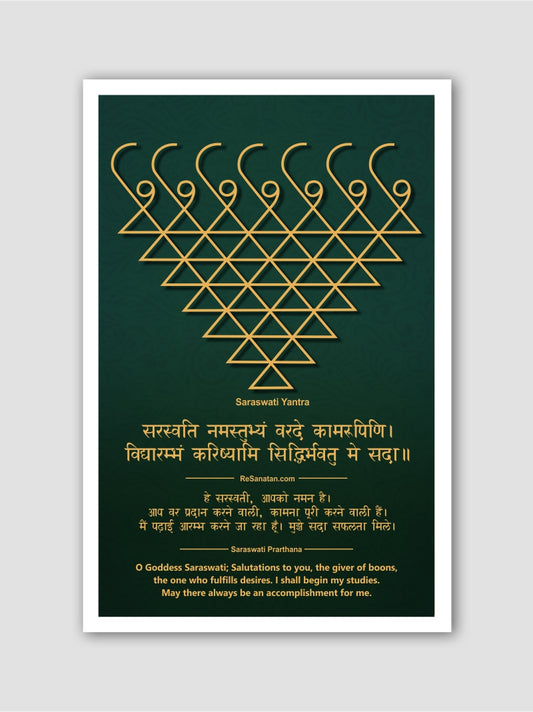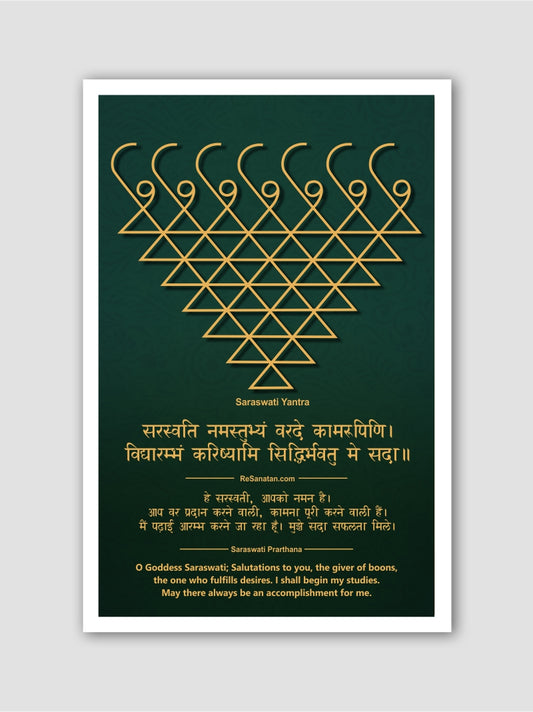Goswami Tulsidas: The Saint, His Divine Encounters, Quotes, and Legacy
Share
Goswami Tulsidas, a 16th-century saint and poet, remains a beacon of devotion in the Hindu tradition. His life, marked by divine encounters and profound spiritual dedication, has left an indelible mark on Indian culture and spirituality. This article delves into the essence of Tulsidas' journey, exploring his interactions with Emperor Akbar, the sage's life-changing dialogue with his wife, his divine encounters with Lord Hanuman, and the legacy of his literary contributions.
Early Life and Spiritual Awakening of Goswami Tulsidas
Goswami Tulsidas, a luminary in the landscape of Indian spirituality, was born in the holy city of Rajapur, located in the present-day Uttar Pradesh, India, in the year 1532 A.D. His birth is surrounded by legends that foreshadow the extraordinary life he was destined to lead. It is said that Tulsidas was born after his parents invoked Lord Shiva for a child, imbuing his life with a divine purpose from the very beginning.
Tulsidas' early years were marked by remarkable incidents that hinted at his future spiritual greatness. According to traditional narratives, he was born with the 32 names of Lord Rama on his lips, a miraculous sign that presaged his unwavering devotion to Rama. However, his childhood was not without hardship. Tulsidas faced immense adversity early on, losing his parents at a tender age, which led to him being raised by a caretaker. This period of his life was steeped in isolation and neglect, yet it was during these formative years that the seeds of his deep spiritual inclination were sown.
The turning point in Tulsidas' life came when he was taken under the wing of a sage named Narharidas. Narharidas was not just a guardian but a spiritual mentor who recognized the latent spiritual potential in Tulsidas. It was under Narharidas' tutelage that Tulsidas was introduced to the Ramayana and the works of the earlier saint-poet, Sant Ramananda. Narharidas instilled in Tulsidas a profound love for the epic tales of Lord Rama, which would later become the cornerstone of his life's work.
Tulsidas' education was extensive and diverse, encompassing various domains of knowledge, including Sanskrit, philosophy, astrology, and the ancient scriptures. Yet, it was the spiritual teachings and the stories of Rama's life that captivated his heart and soul. Tulsidas was particularly drawn to the Bhakti movement, which emphasized personal devotion to God as a path to salvation. This movement, flourishing during his time, provided a fertile ground for his spiritual awakening.
As Tulsidas grew older, his devotion to Lord Rama deepened, transforming his life in profound ways. This devotion was not just an emotional attachment but a guiding force that shaped his actions, thoughts, and writings. His spiritual awakening was marked by a relentless pursuit of God, leading him to renounce worldly attachments and dedicate his life to singing the praises of Rama.
Tulsidas' journey was not devoid of challenges. He faced criticism and skepticism from those who could not comprehend the depth of his devotion. Yet, these challenges only served to strengthen his resolve and deepen his faith. His life became a testament to the power of devotion, illustrating how unwavering faith in the divine can overcome obstacles and lead to spiritual fulfillment.
The Transformative Words of Ratnavali: A Turning Point in Tulsidas' Life
The life of Goswami Tulsidas, a saga of devotion and divine love, reached a pivotal moment that would redefine his spiritual journey, catalyzed by the profound words of his wife, Ratnavali. This episode is not merely a story of marital discord but a moment of profound spiritual awakening, highlighting the transformative power of love redirected from the worldly to the divine.
Ratnavali's role in Tulsidas' life is often encapsulated in a single, life-changing interaction, a testament to the depth of her impact. Married at a young age, Tulsidas found himself deeply attached to his wife, his love for her bordering on obsession. It was this attachment that set the stage for a profound spiritual epiphany.
The incident that would lead to Tulsidas' transformation occurred while Ratnavali was visiting her father's home. Overcome by longing, Tulsidas braved a stormy night, crossing a river in spate, to be with her. Upon his arrival, Ratnavali, taken aback by the lengths to which her husband had gone, uttered the words that would echo through the ages: "If only you would direct even half the devotion you show towards my mortal frame to God, you would attain liberation and eternal bliss."
Ratnavali's words struck Tulsidas to the core, serving as a mirror reflecting the misplaced intensity of his worldly attachments. It was a moment of stark realization that the love and devotion he poured so freely into his earthly relationship could serve a higher, divine purpose. Ratnavali's admonishment was not a rebuke but a wake-up call, a catalyst that ignited Tulsidas' spiritual quest.
This transformative encounter marked the beginning of Tulsidas' detachment from worldly pursuits and his turn towards an unwavering devotion to Lord Rama. Ratnavali's words were the seed from which Tulsidas' Bhakti, or devotional practice, would grow into a towering tree, offering shade and solace to millions through his poetry and teachings.
The impact of Ratnavali's words on Tulsidas underscores the Bhakti ideal that divine love is the highest form of devotion, surpassing all earthly attachments. It illustrates how personal relationships and profound interactions can serve as conduits for spiritual awakening, guiding the seeker towards a higher calling.
In the aftermath of this epiphany, Tulsidas' life underwent a radical transformation. He began to compose poetry that celebrated the glory of Rama, his works imbued with the depth of his devotion and the intensity of his longing for the divine. This period of prolific creativity led to the creation of the Ramcharitmanas, among other devotional texts, which would cement Tulsidas' legacy as a saint-poet of unparalleled devotion.
The story of Tulsidas and Ratnavali is a powerful narrative within the Bhakti tradition, emblematic of the journey from worldly love to divine love. Ratnavali's transformative words did not just change the course of Tulsidas' life; they also enriched the spiritual heritage of India, inspiring countless others to seek the divine with the same fervor and passion Tulsidas showed following that pivotal night.
Tulsidas' response to Ratnavali's words is a testament to the power of Bhakti to transform lives. It illustrates that spiritual awakening often comes from unexpected sources and that true devotion transcends the boundaries of human relationships, reaching towards the infinite and the eternal. Through his writings and his life, Tulsidas exemplifies the journey of a soul from the darkness of ignorance to the light of divine love, guided by the simple yet profound counsel of a devoted wife.
Encounter with Emperor Akbar: A Testament to Faith and Divine Will
The encounter between Goswami Tulsidas and Emperor Akbar stands as a fascinating episode that blends history with legend, illustrating the remarkable intersection of spirituality and royal power during the 16th century in India. This event not only highlights Tulsidas' unwavering devotion to Lord Rama but also showcases his fearless spirit in the face of worldly authority, providing a profound insight into his character and the principles that guided his life.
According to popular lore, Emperor Akbar, the mighty ruler of the Mughal Empire, had heard of Tulsidas' growing influence and the miracles attributed to his deep devotion to Lord Rama. Intrigued and possibly skeptical, Akbar summoned Tulsidas to his court in Agra, a move that brought the saint into the heart of political power. The emperor, known for his interest in various religious traditions and his patronage of arts and culture, was curious about the saint who had captured the imagination of the masses with his devotion and poetry.
The nature of their encounter varies across accounts, but a common thread is the challenge posed by Akbar to Tulsidas to perform a miracle as proof of his devotion and the divine favor he purportedly enjoyed. Tulsidas, steadfast in his belief that the power of true devotion lay not in performing miracles to win the favor of kings but in unwavering faith and surrender to God's will, is said to have respectfully declined. He asserted that his devotion was not a means to display supernatural powers but a path to attain divine love and grace.
Legend has it that Akbar, displeased with Tulsidas' refusal, imprisoned him, a testament to the clash between spiritual ideals and temporal power. However, Tulsidas' time in prison became a period of deep spiritual communion, during which he is believed to have composed several hymns in praise of Lord Rama. The most miraculous part of the tale unfolds while Tulsidas is in captivity, as it is said that every day, the idols of Lord Rama in the temple would not accept offerings until Tulsidas himself had not offered his worship, despite being confined far away from the temple.
Moved by Tulsidas' unwavering faith and the mysterious occurrences that seemed to affirm his divine connection, Akbar eventually released him from prison. This act of release was not just a liberation of Tulsidas from physical captivity but a recognition of the power of faith that transcends the authority of kings and emperors. Upon his release, Tulsidas continued his life's work, further inspired by the ordeal and the divine protection he experienced.
The encounter between Tulsidas and Emperor Akbar serves multiple layers of meaning within the spiritual and historical narrative of India. It underscores the respect and autonomy that spiritual figures commanded, even in the face of imperial power. Moreover, it highlights the principle that true devotion and spirituality cannot be compelled or proven on demand, a belief that Tulsidas held deeply.
This episode also reflects the broader theme of Bhakti, or devotional worship, where the devotee's ultimate allegiance is to the divine, above all worldly powers and authorities. Tulsidas' refusal to perform a miracle on command exemplifies his commitment to the purity of devotion, free from the desire for worldly recognition or reward.
The encounter with Emperor Akbar thus emerges not just as a historical anecdote but as a pivotal moment in Tulsidas' life that reaffirmed his path of devotion and inspired future generations. It is a testament to the enduring power of faith over force, the spiritual over the temporal, and the divine will over human authority. Through this legendary encounter, Tulsidas' legacy as a saint who lived by the principles of Bhakti and whose devotion to Lord Rama was unshakeable, continues to inspire and resonate with devotees across the world.
Divine Encounters: Hanuman and Lord Rama
The spiritual journey of Goswami Tulsidas is marked by profound divine encounters that not only shaped his path but also enriched the Bhakti tradition with narratives of deep devotion and divine grace. Among these, his meetings with Hanuman and the visionary experience of Lord Rama stand out as cornerstones of his life, embodying the essence of his devotion and the miraculous nature of his faith.
Encounter with Hanuman
Tulsidas' encounter with Hanuman is a story that bridges the human and the divine, illustrating the tangible presence of divine beings in the lives of their devotees. Legend has it that Tulsidas met Hanuman under the guise of an old man when he was reciting the Ramcharitmanas at a gathering in Varanasi. Hanuman, moved by Tulsidas' devotion and the beauty of his verses, revealed his true identity and blessed him. This meeting is significant, as Hanuman is considered an embodiment of Bhakti and Shakti (devotion and strength) and a direct link to Lord Rama.
The encounter further deepened when Hanuman granted Tulsidas the boon of a vision of Lord Rama, an event that Tulsidas had longed for with fervent devotion. Hanuman instructed Tulsidas to go to a specific place on the banks of the holy river where Rama, along with his brother Lakshmana, would pass by in disguise. When the moment arrived, Hanuman whispered to Tulsidas the identity of the disguised divine brothers, allowing Tulsidas the ineffable joy of beholding Rama, a moment that crystallized his life's devotion and purpose.
Vision of Lord Rama
The visionary experience of Lord Rama, facilitated by Hanuman's grace, was more than a mere visual encounter; it was a profound spiritual communion that transcended the boundaries of the physical world. For Tulsidas, seeing Rama was not just about the external vision but a deep, internal realization of Rama's omnipresence and the non-duality of the devotee and the divine. This experience is a testament to the belief that God reveals Himself to the devotee in a form that is most desired by the devotee's heart.
This divine vision had a transformative impact on Tulsidas, galvanizing him to compose the Ramcharitmanas, an epic poem in Awadhi that made the story of Rama accessible to the common people, transcending the barriers of language and caste. The Ramcharitmanas, revered as one of the greatest works of Hindi literature, is imbued with the essence of Tulsidas' visionary experience, offering a narrative that is both a literary masterpiece and a devotional hymn.
The Spiritual Legacy of the Encounters
The encounters with Hanuman and the vision of Lord Rama are pivotal events that underscore the power of divine grace and the possibility of direct communion with the divine in Bhakti tradition. These experiences not only validated Tulsidas' devotion but also served as a beacon for countless devotees, affirming the belief that sincere devotion can culminate in the direct experience of God.
Tulsidas' life, marked by these divine encounters, stands as a testament to the living presence of the divine in the world and the efficacy of devotion as a path to realizing God. His writings, enriched by these experiences, continue to inspire a sense of divine presence and the possibility of grace in the lives of devotees, bridging the human with the divine, and the earthly with the celestial.
In the broader context of Hindu spirituality, Tulsidas' encounters with Hanuman and Lord Rama exemplify the intimate relationship between the devotee and the divine, offering a narrative that is both deeply personal and universally resonant. Through his life and works, Tulsidas not only narrated his divine encounters but also opened the doors for others to experience the divine in their lives, making his spiritual journey a beacon of hope and faith for generations to come.
Literary Contributions: Ramcharitmanas and Hanuman Chalisa
Goswami Tulsidas' contributions to Hindu devotional literature are monumental, with the Ramcharitmanas and the Hanuman Chalisa standing as pillars of Bhakti poetry. These works not only reflect Tulsidas' profound devotion to Lord Rama and Hanuman but also embody the essence of Bhakti (devotion) that transcends the mere act of worship to become a way of life. Through his writings, Tulsidas made the divine accessible to the common people, offering them a path to salvation and spiritual fulfillment.
Ramcharitmanas: The Epic of Rama's Life
The Ramcharitmanas, often regarded as Tulsidas' magnum opus, is an epic poem written in Awadhi, a dialect of Hindi. It presents the story of Lord Rama, an avatar of Vishnu, detailing his birth, youth, his marriage to Sita, his exile, the abduction of Sita by Ravana, the demon king of Lanka, and her eventual rescue. What sets the Ramcharitmanas apart from other renditions of the Ramayana, including the Sanskrit version by Valmiki, is its accessibility and its emphasis on Bhakti. Tulsidas composed this epic to make the sacred story of Rama accessible to the common people, transcending the barriers of language and caste that Sanskrit texts often presented.
The Ramcharitmanas is more than a narrative; it's a philosophical and devotional guide. Each verse is infused with teachings on dharma (righteousness), karma (action), and Bhakti. Tulsidas' portrayal of Rama as the ideal king, divine avatar, and the embodiment of dharma has had a profound influence on the cultural and religious consciousness of India. The text encourages devotees to live a life of virtue and devotion, promising salvation and divine grace in return.
Hanuman Chalisa: A Hymn of Praise to Hanuman
The Hanuman Chalisa is another of Tulsidas' seminal works, composed in praise of Lord Hanuman, the devout monkey deity known for his unwavering loyalty to Lord Rama and his incredible feats in the Ramayana. This hymn consists of forty verses (Chalisa refers to "forty" in Hindi), each verse extolling the virtues, strength, devotion, and powers of Hanuman. The Chalisa is recited by millions of Hindus daily, seeking strength, courage, and protection from adversities.
The Hanuman Chalisa is not just a devotional hymn; it's a spiritual compendium that encapsulates the essence of Hanuman's character and the path of devotion he represents. Through the Chalisa, Tulsidas conveys the message that humility, devotion, and service to God are the highest virtues. The hymn serves as a reminder of the power of faith and the possibility of divine grace, encouraging devotees to emulate Hanuman's devotion to Rama.
Impact and Legacy
Tulsidas' literary contributions have had a lasting impact on Hindu spirituality and culture. The Ramcharitmanas and the Hanuman Chalisa have become integral parts of Hindu worship, rituals, and festivals. These texts have transcended their religious origins to become cultural phenomena, shaping the moral and spiritual landscape of millions of people.
The Ramcharitmanas, with its universal themes of duty, righteousness, and devotion, continues to offer moral and spiritual guidance. The Hanuman Chalisa, beyond its devotional appeal, serves as a source of inspiration and strength, embodying the resilience of the human spirit when guided by faith.
Tulsidas' ability to weave profound spiritual truths into accessible literary forms has made his works timeless. His writings are not just religious texts but cultural treasures that continue to inspire, guide, and uplift. Through the Ramcharitmanas and the Hanuman Chalisa, Tulsidas has left an indelible mark on the fabric of Indian spirituality, making his literary contributions a beacon of Bhakti and devotion for generations to come.
The Legacy of Tulsidas
The legacy of Goswami Tulsidas extends far beyond the literary contributions of the Ramcharitmanas and the Hanuman Chalisa. His life and works have profoundly influenced Indian culture, spirituality, and the Bhakti movement, leaving an indelible mark on the collective consciousness of India and Hindu devotees worldwide. Tulsidas' legacy is a rich tapestry that encompasses religious practice, cultural traditions, and spiritual philosophy, making him one of the most revered figures in Hinduism.
Spiritual Renaissance through Bhakti
Tulsidas lived during a time of significant spiritual and social upheaval in India. By composing his works in Awadhi, a vernacular language of the time, he democratized access to religious texts and spiritual teachings, which were predominantly in Sanskrit and thus inaccessible to the common people. This democratization contributed to a spiritual renaissance, fostering a personal and direct relationship with the divine through Bhakti, or devotional love, without the mediation of priests or complex rituals. Tulsidas' emphasis on devotion and morality over ritualistic practices influenced not only the spiritual landscape but also social norms and values, encouraging a more inclusive and compassionate approach to spirituality.
Cultural Impact
The impact of Tulsidas' works on Indian culture cannot be overstated. The Ramcharitmanas, in particular, has played a pivotal role in shaping the cultural and religious identity of millions. It is not just a text to be read; it is enacted through the Ramlila, a folk-theatre adaptation of the Ramayana, which has become an integral part of Indian culture and festivities, especially during the Navaratri leading up to Dussehra. This tradition, recognized by UNESCO as an Intangible Cultural Heritage of Humanity, is a testament to the deep-rooted influence of Tulsidas' rendition of the Ramayana in fostering communal harmony and cultural identity.
Devotional Practice and Rituals
Tulsidas' works have also significantly influenced Hindu devotional practices and rituals. The Hanuman Chalisa, for instance, is recited by devotees across the world for spiritual strength, protection, and the removal of obstacles. His compositions have become integral to daily worship routines, temple rituals, and festivals, embodying the essence of Bhakti and serving as a source of spiritual inspiration and solace for countless devotees.
Philosophical Contributions
Beyond his literary and cultural contributions, Tulsidas made significant philosophical contributions to Hindu thought. His works articulate a philosophy that integrates devotion (Bhakti), duty (Dharma), and knowledge (Jnana), offering a holistic approach to spiritual life that is accessible and relevant to everyone. Tulsidas' portrayal of Lord Rama as the ideal ruler and devout servant of Dharma has also contributed to ethical and moral discussions in Hindu philosophy, emphasizing virtues such as righteousness, integrity, and the importance of fulfilling one's duties.
Enduring Influence and Reverence
Tulsidas' influence extends into the contemporary world, where his works continue to inspire new generations. His teachings and writings are studied for their spiritual, philosophical, and literary value, and his life is celebrated through festivals and commemorations. Tulsidas has been venerated as a saint, with temples and monuments dedicated to his memory, and his birthplace, Rajapur, has become a site of pilgrimage.
Quotes by Tulsidas with Explanations in English and Hindi
1. "सेवा सोई सप्रेम करी, जाकी छोटी न जाइ।" (Seva soi saprem kari, jaaki chhoti na jaai.)
Explanation in Hindi: इस कथन में तुलसीदास जी कहते हैं कि सच्ची सेवा वही है जो प्रेम के साथ की जाती है और जिसमें सेवा करने वाले को छोटा महसूस नहीं कराया जाता।
Explanation in English: Tulsidas emphasizes that true service is rendered with love and without any feelings of inferiority. It reflects the idea that genuine acts of service are performed selflessly, without any regard for one's own stature.
2. "राम से बड़ा राम का नाम।" (Raam se bada Raam ka naam.)
Explanation in Hindi: यहाँ तुलसीदास जी बताते हैं कि भगवान राम के नाम में इतनी शक्ति है कि वह स्वयं राम से भी बड़ा है। नाम का जप करने मात्र से ही भक्तों को आत्मिक शांति मिलती है।
Explanation in English: Tulsidas articulates the power in the name of Lord Rama, suggesting it surpasses even Rama Himself in sanctity and effect. Chanting His name brings spiritual peace and fulfillment to devotees.
3. "बिनु सतसंग विवेक न होई।" (Binu satsang vivek na hoi.)
Explanation in Hindi: इसमें कहा गया है कि बिना सज्जनों की संगति के, व्यक्ति में विवेक या सही निर्णय लेने की क्षमता विकसित नहीं होती।
Explanation in English: Tulsidas highlights the importance of keeping the company of the righteous. Without it, one cannot develop discernment or the ability to make wise decisions.
4. "धीरज, धर्म, मित्र, और नारी। आपद काल परखिये चारी।" (Dheeraj, dharma, mitra, aur naari. Aapad kaal parakhiye chaari.)
Explanation in Hindi: यह कहावत बताती है कि संकट के समय में ही व्यक्ति का धैर्य, धर्म के प्रति उसकी निष्ठा, उसके मित्र और उसकी पत्नी की सच्चाई की परीक्षा होती है।
Explanation in English: This proverb explains that a person's patience, fidelity to dharma (righteousness), the loyalty of friends, and the virtue of a spouse are truly tested during times of crisis.
5. "कामी नारी पियारी जिमी, लोभी प्रिय जिमि दाम।" (Kaami naari piyaari jimi, lobhi priya jimi daam.)
Explanation in Hindi: इस कथन के माध्यम से तुलसीदास जी यह समझाते हैं कि जैसे कामुक व्यक्ति के लिए नारी प्रिय होती है, उसी प्रकार लोभी व्यक्ति के लिए धन प्रिय होता है।
Explanation in English: Through this saying, Tulsidas draws a parallel between a lustful person's affection for women and a greedy person's love for wealth, illustrating the nature of desire and attachment.
6. "जहाँ सुमति तहँ सम्पत्ति नाना।" (Jahaan sumati tah sampatti naana.)
Explanation in Hindi: यहाँ तुलसीदास जी कहते हैं कि जहाँ अच्छी बुद्धि और समझ है, वहाँ विभिन्न प्रकार की संपदाएँ स्वतः ही आ जाती हैं।
Explanation in English: Tulsidas states that where there is good intellect and understanding, wealth of various kinds naturally follows, highlighting the value of wisdom over material wealth.
7. "सोइ सुखवा सो सुखी जाना।" (Soi sukhava so sukhi jaana.)
Explanation in Hindi: इसमें यह विचार व्यक्त किया गया है कि सच्चा सुख वही है जिसे व्यक्ति सुखी मानता है, अर्थात् सुख की अनुभूति व्यक्तिगत है।
Explanation in English: This quote suggests that true happiness is what one perceives as happiness, indicating that the experience of joy is subjective.
8. "तुलसी मीठे वचन से सुख उपजत चहुँ ओर।" (Tulsi meethe vachan se sukh upjat chahun or.)
Explanation in Hindi: तुलसीदास जी के अनुसार, मीठे और सुखद शब्दों से हर दिशा में सुख और खुशियाँ फैलती हैं।
Explanation in English: According to Tulsidas, sweet and pleasant words spread happiness in every direction, emphasizing the power of positive speech.
9. "जाकी रही भावना जैसी, प्रभु मूरत तिन देखी तैसी।" (Jaaki rahi bhaavna jaisi, prabhu moorat tin dekhi taisi.)
Explanation in Hindi: यह कथन बताता है कि भगवान भक्त के भाव के अनुसार स्वयं को प्रकट करते हैं, यानी भक्त जिस भाव से भगवान का ध्यान करता है, भगवान उसे वैसे ही दर्शन देते हैं।
Explanation in English: This quote conveys that God manifests Himself to the devotee in the form that matches the devotee's feelings and devotion, highlighting the personalized nature of divine experiences.
10. "संत नहीं तीन लोक में, जो बैरी संग न नेह।" (Sant nahi teen lok mein, jo bairi sang na neha.)
Explanation in Hindi: इस कथन के द्वारा तुलसीदास जी सिखाते हैं कि सच्चे संत वही हैं, जो अपने शत्रुओं से भी प्रेम करते हैं।
Explanation in English: Through this statement, Tulsidas teaches that true saints are those who love even their enemies, advocating for universal love and compassion.
11. "दीन दयाल विरिद संभारी। हरहु नाथ मम संकट भारी।" (Deen dayaal virid sambhaari. Harahu naath mam sankat bhaari.)
Explanation in Hindi: यहाँ तुलसीदास जी भगवान से प्रार्थना करते हैं कि हे दीनों पर दया करने वाले प्रभु, मेरे भारी संकटों को दूर करें।
Explanation in English: Here, Tulsidas prays to God, who is compassionate towards the downtrodden, to alleviate his heavy burdens and troubles, demonstrating his faith in divine benevolence.
12. "तुलसी सब कुछ सहज में होई।" (Tulasi sab kuch sahaj mein hoi.)
Explanation in Hindi: इस कथन के माध्यम से तुलसीदास जी यह सिखाते हैं कि सब कुछ स्वाभाविक रूप से, सहजता से होता है, जबरदस्ती कुछ भी नहीं होता।
Explanation in English: Through this statement, Tulsidas teaches that everything happens naturally and effortlessly; nothing is forced, emphasizing the flow of life and divine will.
13. "प्रभु ताको जानीये नीको, जो प्रभु संग करै बैर।" (Prabhu taako jaaniye neeko, jo prabhu sang karai bair.)
Explanation in Hindi: तुलसीदास जी कहते हैं कि उसे भी अच्छा समझो जो भगवान के साथ भी बैर रखता है, यह दिखाता है कि प्रेम और क्षमा की कोई सीमा नहीं होती।
Explanation in English: Tulsidas suggests considering even those who are adversarial towards God as good, indicating the boundlessness of love and forgiveness.
14. "बिगरी बात बने नहीं लाख करो किन कोय।" (Bigri baat bane nahi laakh karo kin koy.)
Explanation in Hindi: इससे यह सीख मिलती है कि कुछ चीजें सुधारने की कोशिश में भी नहीं सुधरती, अर्थात् कुछ विपत्तियाँ और समस्याएँ समय के साथ ही हल होती हैं।
Explanation in English: This teaches that some things cannot be mended despite efforts, implying that certain adversities and problems resolve only with time.
15. "तुलसी वह जानीये देही, जो पर विपत्ति काटे नेही।" (Tulsi vah jaaniye dehi, jo par vipatti kaate nehi.)
Explanation in Hindi: तुलसीदास जी के अनुसार, वही सच्चा इंसान है जो दूसरों की विपत्ति और संकटों को दूर करने में सहायता करता है।
Explanation in English: According to Tulsidas, a true human is one who aids in alleviating others' adversities and troubles, highlighting the virtue of compassion.
16. "बिनु हरि कृपा मिलहि नहीं संता।" (Binu Hari kripa milahi nahi santa.)
Explanation in Hindi: इससे हमें यह सिखने को मिलता है कि बिना भगवान की कृपा के संतों की संगति या उनका सान्निध्य प्राप्त नहीं होता।
Explanation in English: This teaches us that without the grace of God, one cannot attain the company or the presence of saints, emphasizing divine grace as essential for spiritual association.
17. "काल करे सो आज कर, आज करे सो अब।" (Kaal kare so aaj kar, aaj kare so ab.)
Explanation in Hindi: यह कहावत तात्कालिक कार्य करने के महत्व पर बल देती है, यह बताती है कि हमें समय के साथ चलना चाहिए और देरी से बचना चाहिए।
Explanation in English: This proverb emphasizes the importance of immediate action, suggesting that one should keep pace with time and avoid procrastination.
18. "जाके प्रिय न राम वैदेही।" (Jaake priya na Ram Vaidehi.)
Explanation in Hindi: इसमें व्यक्त किया गया है कि जिन्हें राम और सीता प्रिय नहीं हैं, वे जीवन में सच्चे सुख से वंचित रह जाते हैं।
Explanation in English: This expresses that those who do not hold Lord Rama and Sita dear miss out on true happiness in life, stressing the importance of devotion.
19. "जग में बैरी कोई नहीं, जो मन शीतल होय।" (Jag mein bairi koi nahi, jo man sheetal hoy.)
Explanation in Hindi: यहाँ तुलसीदास जी कहते हैं कि अगर आपका मन शांत और पवित्र है, तो इस दुनिया में आपका कोई शत्रु नहीं है।
Explanation in English: Here, Tulsidas says that if your mind is calm and pure, you have no enemies in this world, highlighting the power of inner peace.
20. "तुलसी जग आये कौन भले, कौन मंदे।" (Tulsi jag aaye kaun bhale, kaun mande.)
Explanation in Hindi: इस कथन के माध्यम से वे यह प्रश्न करते हैं कि इस जगत में आकर कौन अच्छा बना और कौन बुरा, यह दर्शाता है कि कर्म ही व्यक्ति को अच्छा या बुरा बनाते हैं।
Explanation in English: Through this statement, he questions who becomes good or bad after coming into this world, indicating that actions define a person's character.
21. "सब नर करहिं परस्पर प्रीती।" (Sab nar karahin paraspar preeti.)
Explanation in Hindi: इसमें व्यक्त किया गया है कि सभी मनुष्यों को आपस में प्रेम करना चाहिए, यह सामाजिक सद्भाव और एकता की ओर इशारा करता है।
Explanation in English: This expresses that all humans should love each other, pointing towards social harmony and unity.
These quotes from Tulsidas, with their deep meanings, guide us towards living a life filled with love, compassion, and devotion, emphasizing the importance of good deeds, the power of God's name, and the value of inner peace.
























